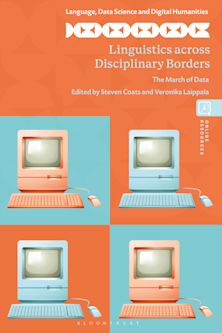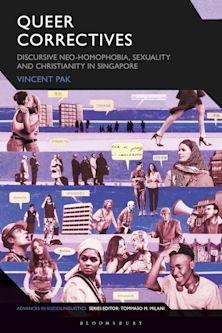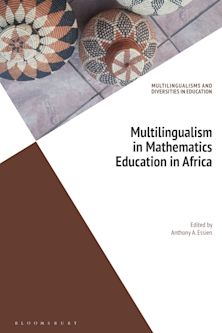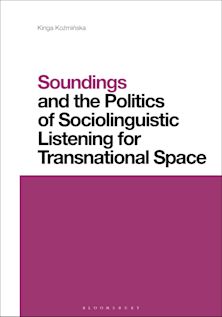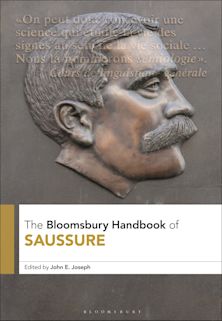- Home
- ACADEMIC
- Linguistics
- Sociolinguistics and Linguistic Anthropology
- Linguistic Citizenship and Vulnerability
Linguistic Citizenship and Vulnerability
The Making and Unmaking of Language and Selves
Linguistic Citizenship and Vulnerability
The Making and Unmaking of Language and Selves
For information on how we process your data, read our Privacy Policy
Thank you. We will email you when this book is available to order
You must sign in to add this item to your wishlist. Please sign in or create an account
Description
Examining Hannah Arendt's concepts of 'pluriversality' and 'natality' through a linguistic lens, this book explores their implications for language. Highlighting discourses of vulnerability, chapters critically approach, dissect, and analyse a range of issues related to the practice, or avoidance, of multilingualism and how this contributes to states of unpredictability and exposure.
Exploring in detail how forms of vulnerability are semiotically constituted out of the pluriversality and multivocality of everyday engagements, this book examines how vulnerability is expressed across modalities. Viewing Hannah Arendt's concepts of pluriversality and natality through a linguistic lens, it casts light on how individuals and groups made vulnerable enact and counteract or contest vulnerability in acts of 'linguistic citizenship'.
Critically dissecting and analysing a range of issues related to multilingualism, chapters argue that vulnerability offers a way to engage productively with others and 'redesign' the self, and that finding ways to engage with pluriversality and unpredictability productively is crucial for complex societies. In so doing, Linguistic Citizenship and Vulnerability puts forward a strong case for adopting the concepts of pluriversality and vulnerability into the wider framework of linguistic citizenship.
Table of Contents
Introduction, Quentin Williams and Christopher Stroud (University of the Western Cape, South Africa)
1. Pluriversalities and Vulnerabilities, Christopher Stroud and Quentin Williams (University of the Western Cape, South Africa)
Part I: Vulnerability: Genres and Modalities
2. Hearing History through Inter-Racial Encounters, Janine Harry and Amiena Peck (University of the Western Cape, South Africa)
3. Failing the Vulnerable and the Voiceless, Mariana Kriel (Nelson Mandela University, South Africa)
4. Vulnerable in Violence, Koki Kapa (University of Witswatersrand, South Africa) and Mooniq Shaikjee (University of the Western Cape, South Africa)
5. Weaves of Vulnerability and Narratives of Escape, Jason Richardson (University of the Western Cape, South Africa)
Part II: Voices of Vulnerability
6. Post-National Linguistic Vulnerability, Carla Roets (University of the Western Cape, South Africa)
7. (Re)Defining Congolese Identity and Multilingual Interactions at the Cape of Good Hope, Jaclisse Mayoma and Quentin Williams (University of the Western Cape, South Africa)
8. Intimacies of Gay Xhosa Initiates in 'The Wound', Ndimphiwe Bontiya (University of the Western Cape, South Africa)
Part III: (Re)Working Vulnerability
9. Vernaculars of Vulnerability, Shanleigh Roux (University of the Western Cape, South Africa)
10. (Re)Scripting an Ethics for Vulnerability Research, Sibonile Mpendukana (University of Cape Town, South Africa)
11. Re-Imagining Multilingualism, Zannie Bock, Lauren Abrahams, Keshia Jansen and Christopher Stroud (University of the Western Cape, South Africa)
Postscript, Sindiwe Magona (University of the Western Cape, South Africa)
Index
Product details

| Published | 18 Apr 2024 |
|---|---|
| Format | Hardback |
| Edition | 1st |
| Extent | 256 |
| ISBN | 9781350169937 |
| Imprint | Bloomsbury Academic |
| Dimensions | 234 x 156 mm |
| Series | Advances in Sociolinguistics |
| Publisher | Bloomsbury Publishing |













